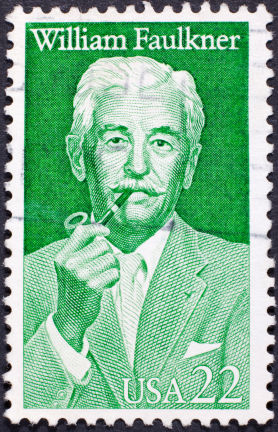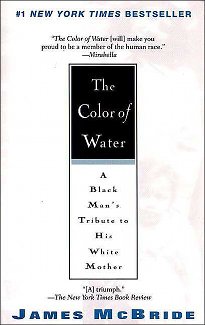“Look, Mom! I coated my left hand with magical ink!” The
little boy held up his hand for her inspection. It was indeed covered in mystic
scribbles made in blue ink—magical or not.
She pulled a melodramatic, astonished face, hands to the
sides of her face and eyes wide. The boy laughed and returned to his work,
continuing his chatter. His mother, meanwhile, began chopping the potatoes she
had just finished peeling for a potato salad.
“Do you know, Mom, that if snails had wings they still wouldn’t
be able to fly? Their shells would weigh too much. They would have to get out
of the shell or something,” here the boy squirmed in demonstration, “and hope
another snail didn’t take it while they were away. Do you think a flying snail
would be faster than a real one? I think so. The shell is probably why they are
so slow.”
His mother rapped the counter with her knife, and he glanced
up at her from his careful concentration on his hand—the right one now. She
signed to him that she wanted some ingredients from the basement refrigerator,
and then wrote down a small list for him. Eggs, mayonnaise, mustard. He sighed
dramatically, put down his pen, and ran downstairs to fill her order.
She had just chopped the last potato when he came back,
placing the items on the counter and then following her gesture to put a pot on
to boil for the eggs. When he got back to his position at the counter, he
picked up his red pen and continued his work.
“I think I’m allergic to eggs, Mom,” he said after a moment
of pondering and quiet. Without looking up to catch her eye roll, he
elaborated. “I mean, my fingers always hurt after I peel them and eggs can make
you sick.”
He looked up at her. “Nice try,” she signed.
He shrugged. “Well, you’ll be sorry when you find out and
have to take me to the hospital to get my fingers amputated, then.”
“Maybe you should be more careful with the eggs,” she
signed.
“But Mom, better safe than sorry.”
He drew a picture of a flying snail on his thumb, with the
shell on the knuckle at the base of his ring finger. The shell was
disproportionately large, taking up at least three colors to construct, while
the snail was dwarfed by the butterfly wings he gave it. Bored with that soon,
he began to draw a rocket ship on the inside of his wrist. It was his goal to
someday be an astronaut, and he had been practicing drawing rockets for about a
week now.
His mom rapped the counter with her knife again. She had
been reading the recipe, but now she wanted the boy to put his pens away and
help her clean up the counter. He put the pens in his pocket. “Mom, at school I
learned that there’s this thing called ‘gravity’ that is constantly smashing us
down into the Earth. Like, ALL THE TIME. But if you get far enough away from
Earth, it isn’t there anymore and that is why astronauts float around in the
air. But if you are in space and you don’t have anything to hold on to, then
you just float away and there’s no way to come back. So that’s why they wear
jetpacks. Jetpacks are so cool. I wish I could have one.”
Just then, dad came home. He shouted out his arrival and the
boy ran from the kitchen to greet him, followed more slowly by his mother. “He
wants a jetpack,” she signed to him by way of greeting, leaning against the
doorway into the entryway.
“A jetpack? What would you do with a jetpack?” he asked,
turning to his son, who was busy wrapping himself around his dad’s feet by way
of requesting a ride back to the kitchen.
The little boy let go quickly and jumped to his feet. “I
would go everywhere! I could take it to school and show all my friends, and I
could use it to fly around the house, and I could use it to even run errands
for Mom!”
“You want to run errands for Mom? I bet she would love that.
You could take your bike to the store tomorrow morning to get the groceries.”
“No, that’s too far and I couldn’t carry it all.”
“What did you do to your hands?”
“It’s magical ink,” his wife signed.
“Ancient runes!” dad said, dropping to his knees to examine
his sons hands. “What does the snail mean? What power does it give you?”
“The power of flight!”
His father straightened, nodding and eying his son. A moment
later, he pounced, swiping the boy up into the air and running with him past
his wife and into the living room to throw him on the couch. The boy laughed,
screaming to be put down, but requesting a repeat immediately after impact.
Dad said no, and Mom told him to come help her peel the
eggs. “But I’m allergic!”
“No, you aren’t.”
“If he says he’s allergic, honey, maybe you should listen to
him. I’ll swap him jobs and he can go mow the lawn instead.”
“No! I want to peel the eggs!”
“But aren’t you allergic?”
The boy ignored the comment and ran to wash his hands in the
kitchen sink. The man gave his wife a quick kiss and did turned to wash his
hands, too. The three of them peeled the eggs, the boy giving his dad a rundown
of how his day went.
“There’s this boy at school who is, like, really good at
math and stuff, and he said he would help me with my multiplication because I’m
not so good at it, except I am really good at stuff like fractions and stuff.”
“He got a 96 on his math test,” his mom signed.
“A 96? Why don’t we have this boy in college yet?”
“Because I’m still too little, Dad. You have to be big to go
to college.”
“How big? Can we send you next year?”
“No! I have to, like, graduate high school.”
“What else happened at school today?”
“Well, my friend Dustin and I played tag at recess, and I
had to run a little slower so he didn’t feel bad because he is not as fast as
me. But I still won.”
“Do you always play tag at recess?”
“No, sometimes I play on the monkey bars.”
“Because you’re a monkey?”
The boy sighed. “Dad, they aren’t for monkeys. They’re for
kids.”
“But why do they call them monkey bars, then?”
“I don’t know! Maybe the person who made them liked monkeys!”
“And how was your day, honey?”
“Good. I helped our neighbor Mrs. Rodney with her bird. It’s so loud; I
had no idea birds could be so shrill. How was work?”
They were on the last egg, so the boy washed off his hands
and scampered up the stairs to his room. The woman rolled her head around,
stretching out her neck from being hunched over. She started chopping them.
“It
was good,” he signed to her.
“No angry customers today?”
“No, thank goodness. I don’t think I could have taken
another day like yesterday. Fifty tons! What could she have wanted with that
much top soil, anyway? Is she trying to plant an indoor farm or something?”
The last egg finished, his wife added them all to the
potatoes, spooning in the relish and other ingredients and stepping aside to
let him stir. She jumped up to sit on the counter, telling him about the sick
canary she had been working with that day. Much as she exclaimed over the incessant
tweeting, she really did love her part-time job, something she had started a few
months before at her husband’s suggestion. Since then, her end of their evening
conversations had been speckled with stories about various dogs—both sweet and
terrifying—cats, which she wasn’t particularly fond of, and other animals that
were treated at the clinic. She was getting to the point where she recognized
many of the dogs she saw nosing the wind while riding down the interstate. As
for the owners, she didn’t have much to do with them, so she had yet to walk up
to a familiar dog or cat while in public and start interacting with it.
Her husband interrupted her retelling of her day to tell her
he loved her. She smiled and repeated the sentiment. Upstairs, they could hear
their son as he began commentating his play. “And he comes in from the side! Oh
no! He’s out of gas! Can he make it back to his crew before he loses the race?”
“What’s for dinner?”
“If you would please grill these beef patties, we’re having
hamburgers.”
“Oh good. I’ll have that commentator upstairs come down to
help you, then.” He trotted up the stairs, grabbed his son, and carried him
down again, screaming and laughing at the same time. Placing him back on his
feet at the bottom, he said, “Go help your mom. It’s either this or we boil
more eggs and eat them for dinner.”
“No!” The boy ran to his mom and stood at attention in front
of her. His dad took the beef patties and went outside, and the woman directed
the boy to start setting the table while she sliced tomatoes.






